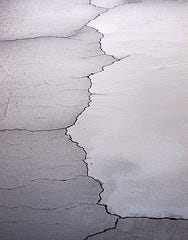The Egyptian Collection
I recall my visits as a child, with my father, to the British Museum. Our attention would focus on the Egyptian and Near Eastern collections before retreating to Foyles for some book shopping and the 'Golden Egg' for egg and chips.
The museum was largely unmodernised. Some rooms had new displays with featured items supported by explanatory captions, but there were long sequences of rooms consisting of mahogany cases stuffed with items. I remember pottery boats and mummified cats particularly. These were numbered, with accession numbers painted or stuck on the bases, and sometimes, but by no means always, you could find, in a remote corner of the room, a key with a succinct description, a date or a dynasty. The keys were unhelpful but gave me the frail illusion that I understood what I was looking at. I could often rely upon my father, whose knowledge was astonishingly broad, to explain or most likely suggest a book I should read. Just as often however I would have to use my unreliable imagination.
At home I had a much thumbed copy of 'Breasted on Ancient Egypt', a popular edition dating from the 1920s, that provided some small islands of knowledge to cling to in the vast sea of my ignorance. I suspect that contemporary scholarship might have submerged even these. For the most part however, I was like the child traveller in the beautifully illustrated Robert Louis Stevenson's 'A Child's Garden of Verses', that my mother would read to me when I was ill. The poem starts 'I should like to rise and go' and concludes:
Where among the desert sands
Some deserted city stands,
All its children, sweep and prince,
Grown to manhood ages since,
Not a foot in street or house,
Not a stir of child or mouse,
And when kindly falls the night,
In all the town no spark of light.
There I'll come when I'm a man
With a camel caravan;
Light a fire in the gloom
Of some dusty dining room;
See the pictures on the walls,
Heroes, fights and festivals
And in a corner find the toys
Of the old Egyptian boys. At home too, in the living room in a glass case, was our 'Egyptian Collection'. Fragments collected by my grandfather in his middle eastern travels: glass, amulets and beads, small tablets, coptic fabric, pieces of pottery and tiny 'idols'. He had studied for his doctorate in oriental languages at the University of Berlin and during the First World War had served in the Middle East. He was a scholar of Arabic and Persian with a deep interest in the history and culture of the region. What precisely the fragments were, exactly how they were acquired and their value, if any, was and remains unknown to me. Despite, or perhaps because, of this they captured my imagination.
The collection survived the Second World War, persecution, exile and concentration camp, reburied in a safe in Berlin. They were recovered, unlike my grandfather's books which, as a book lover he had refused to mark or stamp. The collection was, I knew, only a third of its original size. It had been divided by my mother and her two sisters on my grandfather's death. Each cherishing the tangible memory. Last weekend my cousin, handling the estate of his parents, my much loved Aunt Ruth and Uncle Paul, generously passed to me their part of the collection. The pieces emerged from the transatlantic journey in bales of bubble wrap and duct tape and I arranged them on hastily cleared shelves in my library.
I do not care much for possessions. This is not to say I do not like owning 'things' but more to say I do not care for them, in the full sense of that word. The Egyptian Collection is different. These are powerful objects, old, mysterious, symbolic, freighted with love, acquired out of intellect and curiosity, survivors. They speak to me.



